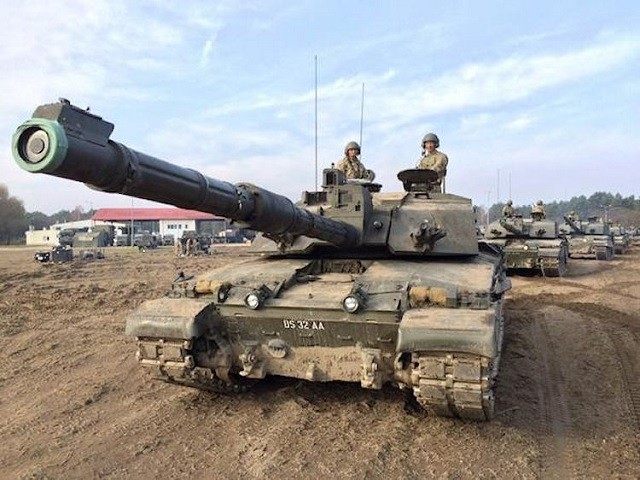Former Chief of the General Staff Lord Dannatt has broadsided the government with a warning to heed voter concerns over defence while at the same time cautioning over an increasingly militaristic Russia and the potential for the Conservatives to leak votes to UKIP on the issue.
Rebutting a recent claim by former defence secretary, now foreign secretary Philip Hammond there are “no votes in defence”, the respected General wrote in the Daily Telegraph that such a view is “wrong, complacent and dangerous”, not least because defence is an area increasingly present in the public conciousness. Reminding the reader that defence is the first duty of government, Lord Dannatt says dwindling defence budgets “disregards the deteriorating worldwide security situation”.
A serious concern in the military community is the failure of the major political parties to commit to maintaining a level of spending on defence of at least two percent of GDP. Although spending the level is a membership requirement of North Atlantic Treaty Organisation (NATO) agreements to which Great Britain is a signatory, only UKIP is dedicated to boosting defence. The fact that national-minded Tories may very well defect to UKIP in greater numbers than they have been of late already because of the pledge, Dannatt asks whether that shouldn’t “catch the attention of Conservative Central Office”.
Warning that further neglecting defence would invite ridicule from potential enemies such as Russia, and despair from allies like the United States, Dannatt said the present strategy was “not an honourable policy”.
The latest round of cuts came with the 2010 Strategic Defence Spending Review, or SDSR, which was one of the first major actions of the present government. Another SDSR is planned for this year, with the how and where of defence spending sitting as the gift of whoever forms the next government. Anticipating further cuts, the various branches of the armed forces have already started manoeuvres, each determined to prove to Whitehall mandarins and members of parliament they are most deserving of funding.
A form of competition between the services has broken out, with each competing to show themselves best placed to simultaneously fight the Russians, and deliver global aid, the primary means by which generals and admirals now plead for funding. Breitbart London reported this week on one such exercise, a large by British standards war game in the air above north-east England performed by the Royal Air Force.
Called the largest war-game of its kind in over 30 years, the 30-plane exercise was only possible now various strategic assets had returned to the UK from deployment in Afghanistan. One RAF source said of the games: “Russia has certainly painted the background to these exercises, though of course they are needed in any event. I think there’s a view forward to the next SDR and the need to remind the powers that be about the prominence of air defence.
“The feeling is that, just because we haven’t had a large headline concerning Russian nuclear bombers recently doesn’t mean air defence isn’t important, and look at how seriously we’re taking it.”
In any case, party leaders may heed Lord Dannatts concluding remarks: “The British people have a right to decide their position in the world and the loser of the upcoming election might rue the judgment that there are no votes in defence.”

COMMENTS
Please let us know if you're having issues with commenting.